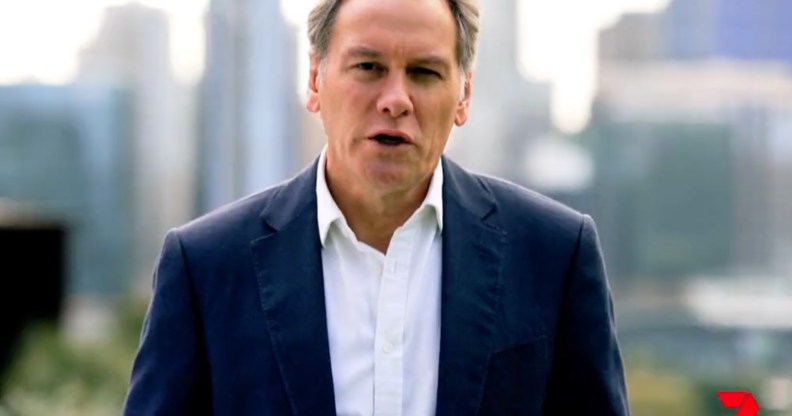Channel 7 condemned by more trans people for ‘horrifying’ use of images without permission

More trans people have reacted in anger at Australian broadcaster Channel 7 using their images without permission. (Credit: Channel 7)
More young trans people have condemned Channel 7 news for using unauthorised images in a programme about detransitioning.
Trans influencer Grace Hyland previously criticised the Australian broadcaster for using her photo in what the channel billed its “most controversial story this year”, the trailer for which alleged that children “are being told they should change from boy to girl, or girl to boy, from as young as 12 years old”.
Claiming that “thousands of kids [are] regretting it”, the trailer placed photos of trans people both pre and post-transition side by side to support its claims, for which no data or studies are cited.
Hyland isn’t the only trans person to have spoken out. Now, content creator Levi Ace Day has detailed his experiences in having his photographs used to “promote transphobia.”
In a TikTok video, he said: “Just wanted to say for the record that obviously I don’t support their opinion. Nobody is convincing kids to be trans and change their gender.
“The story also implies that I’m a child who regrets transitioning and I am 27. I did not realise I was trans until I was at least 23,” he added, noting in the caption that he “doesn’t regret it.”
Musician St South was also showcased in the show. Condemning the broadcast as “horrifying [and] deeply unethical”, the singer has started an online petition to remove the segment.
“I was absolutely horrified, deeply hurt and anxious to discover one of my videos was featured in the segment without my consent”, St South said in a video shared on TikTok.
“The video was of me expressing how much better my life is since having gender-affirming surgery and how much happier I am in my skin.
“Sharing these videos without the consent of the creators is not only deeply unethical but immensely harmful to the trans and gender-diverse community.”
Meanwhile, Hyland said that by using her photos, Channel 7 made it look as if she regretted transitioning.
“I transitioned at 13 and I do not regret it at all”, she insisted, accusing the broadcaster of using her photos either because her “dad was on Home and Away on Channel 7 back in the day”, because she’s a “public figure” or because she’s “publically defended child transitioning.”
A spokesperson for Channel 7 apologised to Hyland, saying: “We acknowledge the photo might inadvertently imply that the individual in question regretted their transition. As soon as we were made aware, the image was removed and the promo replaced. We sincerely apologise for any confusion this may have caused.”
In Australia, transgender rights are legally protected under federal and state laws, but the legal details on gender recognition vary state by state.
Not all gender-affirming surgeries are covered by national healthcare provider Medicare, and between 2004 and 2017, transgender children required approval from the Family Court of Australia before being prescribed hormone treatment.
However, a ruling later declared that where there was no dispute between a child, their parents and their healthcare providers, no court approval was needed.
Now, there are specialist children’s gender services in all mainland states in Australia, but 40 per cent of trans youth continue to report that their healthcare providers fail to understand or respect their identity.
Minors are not able to access gender-affirming care without the consent of both parents, and many continue to experience delays in receiving treatment.
How did this story make you feel?

